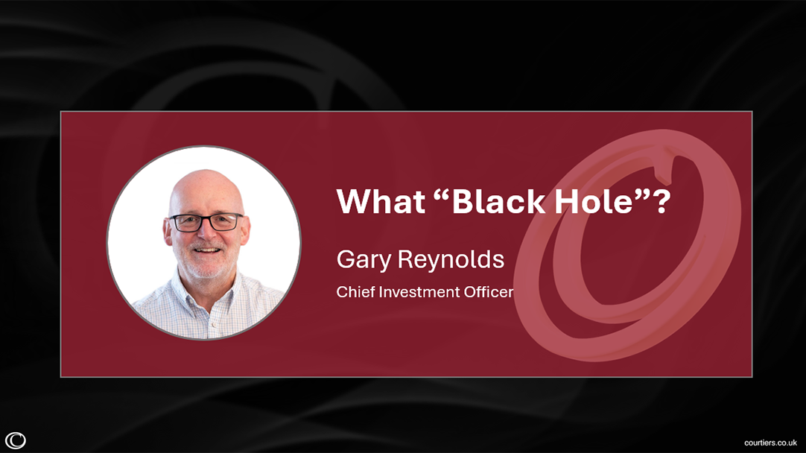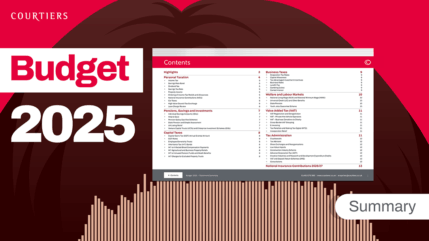In the 2016 budget, the Government announced that it intended to change the tax rules so that interest distributions paid (or classed as paid in the example of accumulation shares) by UK Open-Ended Investment Companies (OEICs), Unit Trusts and Investment Trust Companies (ITCs) may be paid without deduction of income tax. This change comes into effect from 6th April 2017.
As each Courtiers Fund is treated as an OEIC for tax purposes, this article has been written to ensure that Courtiers’ clients are aware of how the changes may affect them.
To understand the change, let’s look at what the current rules are, and how they are changing.
Prior to 6 April 2017
On 6 April 2016, the Government introduced the Personal Savings Allowance. This means that basic rate taxpayers can earn up to £1000 in savings income tax free. Higher rate taxpayers can earn up to £500 tax free, but there is no Personal Savings Allowance for additional rate taxpayers.
For the purposes of the Personal Savings Allowance, savings income includes account interest from bank and building society accounts, accounts with providers such as National Savings and Investments, interest distributions (but not dividend distributions) from OEICs, income from government or company bonds, and most types of purchased life annuity payments.
For UK resident investors, income tax is deducted on distributions at the rate of 20% on the gross amount of payments, who will receive credit for the tax suffered.
A shareholder who is liable to additional rate (45%) income tax, or a higher rate (40%) taxpayer with savings income that exceeds their Personal Savings Allowance in a tax year, must account to HM Revenue & Customs (HMRC) for the further tax due of 25% or 20% respectively on the gross amount of the interest.
A basic rate taxpayer has no further tax liability. Shareholders who are non-tax payers or starting rate for savings tax payers (0%) may reclaim all or part of the tax deducted from HMRC.
From 6 April 2017
With effect from 6 April 2017 interest distributions paid or treated as paid by a fund to shareholders, including individual shareholders, will be paid gross without deduction of UK income tax.
A shareholder who has savings income in a tax year that exceeds their Personal Savings Allowance must account to HMRC for the applicable tax due on the gross amount of the interest. This applies whether they are a basic, higher or additional rate taxpayer.
Effectively this means that:
- Higher and additional rate taxpayers would, as now, have to account to HMRC to pay the tax due.
- Basic rate taxpayers with savings income that exceeds their Personal Savings Allowance would have a new obligation to account to HMRC for the tax due, which would not have been necessary if 20% tax had been deducted at source.
- Individuals with no tax to pay on savings income will no longer need to reclaim tax deducted from HMRC
What will Investors need to do after 6th April 2017?
This change will happen automatically and means a more simple process for the majority of individual investors, who would otherwise have to reclaim tax withheld from interest distributions where their savings income falls within the Personal Savings Allowance.
- If you currently file a self-assessment tax return you should continue to do so
- If your savings income exceeds your Personal Savings Allowance and you are a basic rate taxpayer you should contact HMRC, preferably by registering for a personal tax account. It is possible for HMRC to collect any unpaid tax via PAYE coding adjustments.
As always, we will be listening closely to the forthcoming Spring Budget and will provide a summary of our thoughts and key announcements on the day. To keep up to date, follow us on Social Media or subscribe below to receive news via email. If you have any questions regarding this particular article and how it might affect your investments, please do speak to your adviser who will be happy to help.
Please note that tax treatment depends on individual circumstances and may be subject to change in the future.












